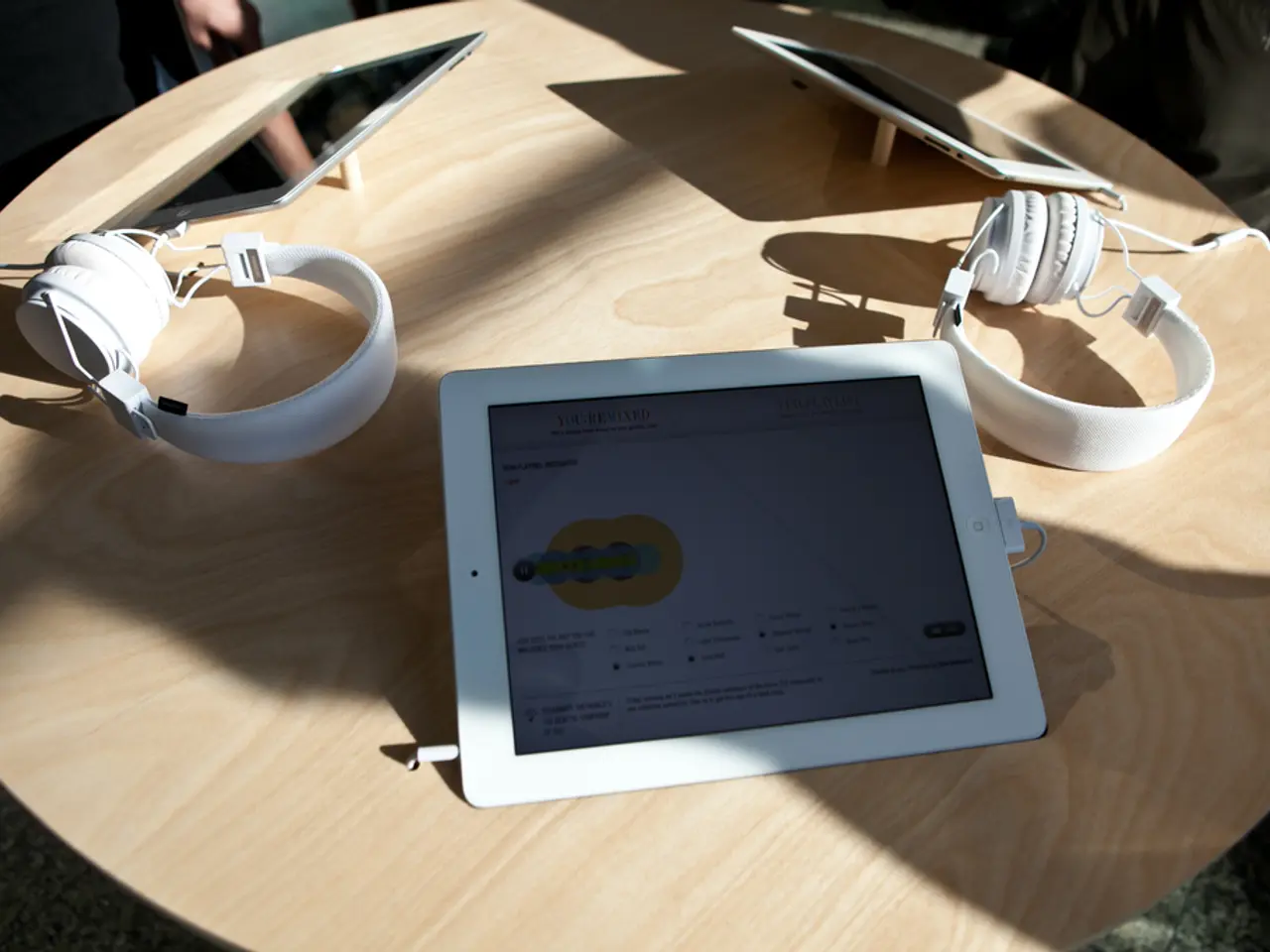Advancements in Wearable Heart Electrocardiogram (ECG) Gadgets: A Sneak Peek into the Coming Era
**Current and Future Applications of AI-Powered Wearable ECG Monitoring Devices**
In the realm of healthcare, AI-powered wearable ECG monitoring devices are rapidly gaining traction, revolutionising the way we manage our heart health. These innovative devices offer a multitude of benefits, from personalised healthcare insights to the early detection of heart conditions.
One of the key advantages of these devices is their ability to provide **Personalised Healthcare Insights**. By continuously monitoring heart activity, individuals can receive proactive, tailored health advice, enabling them to make informed decisions about their wellbeing and monitor their heart health more effectively.
In addition, these devices are equipped with advanced AI algorithms that allow for **Accurate Heart Disease Detection**. These algorithms can identify heart conditions such as atrial fibrillation, low ejection fraction, and structural murmurs in real-time, addressing diagnostic gaps in routine exams.
Moreover, these wearable devices facilitate **Remote Monitoring**, enabling continuous monitoring of heart activity from anywhere. This not only improves access to cardiac care but also allows for remote healthcare services, fostering an interactive environment between patients and healthcare providers.
Looking ahead, the future of AI-powered wearable ECG monitoring devices is promising. Several trends are expected to shape their development:
- **Integration with Nanotechnology**: The use of nanotechnology-enabled biosensors can enhance the detection capabilities of wearable devices, potentially predicting myocardial damage by monitoring troponin levels. - **Advanced Connectivity**: The integration of 5G and low-power wide-area networks (LPWAN) will further enhance data transfer capabilities, enabling real-time applications like high-definition AR content or video consultations. - **Edge Computing**: Shift towards edge computing will reduce latency, enhance privacy, and allow devices to function effectively even without constant internet connectivity. - **Specialized Devices for Demographics**: Expect increased adoption of wearables tailored for specific demographics, such as seniors or athletes, equipped with AI algorithms addressing unique health needs.
These advancements are expected to lead to increased integration of wearable ECG monitoring devices with advanced AI systems, improving diagnostic accuracy. In fact, these devices can reduce diagnostic errors by up to 30%, improving patient treatment outcomes.
The scope of usage for wearable ECG monitoring devices is expected to expand beyond just ECG monitoring to include other health indicators, creating a comprehensive health system based on continuous monitoring and early prevention. Future developments in wearable ECG monitoring devices include the creation of more comfortable and wearable devices with improved manufacturing materials for extended use without discomfort.
AI-powered wearable ECG monitoring devices are expected to improve the efficiency of diagnosis and treatment, reducing healthcare costs and minimising medical errors. They can also lead to early medical intervention and prevent the development of chronic diseases.
Integration of wearable ECG monitoring devices with electronic medical records offers a comprehensive system for monitoring and documenting medical cases. These devices are used in various medical institutions for early detection of arrhythmias and remote patient monitoring, particularly for those with chronic diseases.
Modern studies analyse published research in the field of wearable ECG monitoring devices and AI to understand their impact on healthcare. These devices allow for home health monitoring, making medical procedures more efficient.
Specialized training courses are available for medical engineers to gain modern knowledge and skills in these technologies, preparing them to play an active role in shaping the future of smart healthcare. With these advancements, the future of heart health management looks bright and promising.
- The integration of AI algorithms in wearable ECG monitoring devices allows for accurate detection of heart diseases, such as atrial fibrillation and low ejection fraction.
- The use of advanced connectivity, like 5G and low-power wide-area networks (LPWAN), will enhance data transfer capabilities, enabling real-time applications with high-definition AR content or video consultations.
- The shift towards edge computing will reduce latency, enhance privacy, and allow devices to function effectively even without constant internet connectivity.
- Future developments in wearable ECG monitoring devices include the creation of more comfortable and wearable devices with improved manufacturing materials for extended use without discomfort.
- Specialized training courses are available for medical engineers to gain modern knowledge and skills in AI-powered wearable ECG monitoring devices, preparing them to play an active role in shaping the future of smart healthcare.




